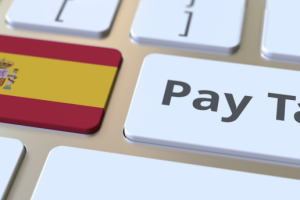The impact of the COVID-19 crisis on the measures to combat illicit financing
The current COVID-19 crisis is unprecedented in our history.
The COVID-19 pandemic has forced national governments to enact various measures to limit the spread of the outbreak, to support public health systems (quarantine measures, travel restrictions, limitations to public life and lockdowns), to safeguard the economy and to ensure public order and safety.
The pandemic provides incentives and opportunities for criminal groups. Criminals - as clarified in the EUROPOL report “Pandemic profiteering: how criminals exploit the COVID-19 crisis” dated 27 March 2020 - have quickly seized the opportunities to exploit the crisis by adapting their modes of operation or developing new criminal activities.
On 1 April 2020, the Financial Action Task Force (FATF) - through a statement issued by its President - highlighted that criminals are taking advantage of the COVID-19 pandemic to carry out financial fraud and exploitation scams, including advertising and trafficking in counterfeit medicines, offering fraudulent investment opportunities, and engaging in phishing schemes that prey on virus-related fears. Malicious or fraudulent cybercrimes, fundraising for fake charities, and various medical scams targeting innocent victims are likely to increase, with criminals attempting to profit from the pandemic by exploiting people in urgent need of care and the goodwill of the general public and spreading misinformation about COVID-19. Like criminals, terrorists may also exploit these opportunities to raise funds. Although many people are under confinement, criminals and terrorists - as specified in the news “Preventing crime and protecting police: INTERPOL’s COVID-19 global threat assessment” published by INTERPOL on 6 April 2020 - continue to operate. Crime and terrorism will find ways to continue to operate across borders even in times of border closures.
Criminals and terrorists - the FATF added - may seek to exploit gaps and weaknesses in national anti-money laundering/counter-financing of terrorism (AML/CFT) systems while they assume resources are focused elsewhere, making risk-based supervision and enforcement activity more critical than ever. Financial institutions and other businesses should remain vigilant to emerging money laundering (ML) and terrorist financing (TF) risks and ensure that they continue to effectively mitigate these risks and are able to detect and report suspicious activity. In this connection, on 31 March 2020, the European Banking Authority (EBA) called on competent authorities to support financial institutions’ ongoing efforts by sharing information on emerging ML/TF risks, setting clear regulatory expectations and using supervisory tools flexibly.
Moreover, the FATF encourages: (i) the fullest use of responsible digital customer onboarding and delivery of digital financial services in light of social distancing measures; (ii) countries and financial service providers to explore the appropriate use of simplified measures (simplified due diligence) to facilitate the delivery of government benefits in response to the pandemic; (iii) countries to work with relevant non-profit organisations (NPOs) to guarantee that much needed aid is getting to its intended recipients in a transparent manner. It has to be ensured that legitimate NPO activity is not unnecessarily delayed, disrupted or discouraged.
On 28 April 2020, the FATF specified that it is actively monitoring the impact of the COVID-19 crisis on measures to combat illicit financing and it remains vigilant to the threats posed by criminals and terrorists who may seek to exploit this period to further their criminal objectives.
Profit - as specified in the document “Money-laundering and COVID-19: Profit and Loss” published by the United Nations Office on Drugs and Crime (UNODC) on 14 April 2020 - remains at the heart of transnational organized crime. The ML/TF threat will continue to evolve and persist during, and after, the pandemic. Organized criminals, including professional money launderers and terrorism financiers, will continue to assess and exploit demand for crisis-related goods and services.
Barbara Bandiera
Lawyer
President of the UIA Compliance & Anti-Money Laundering Sub-Committee
Milan, Italy






